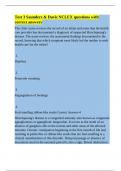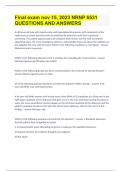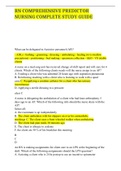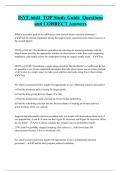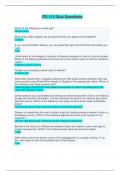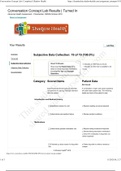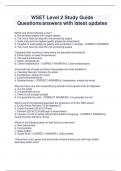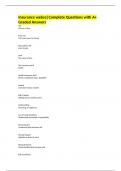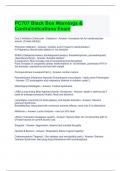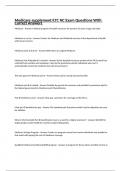Exam (elaborations)
Test 3 Saunders & Davis NCLEX questions with correct answers
- Institution
- Maryville University Of St. Louis
The clinic nurse reviews the record of an infant and notes that the health care provider has documented a diagnosis of suspected Hirschsprung's disease. The nurse reviews the assessment findings documented in the record, knowing that which symptom most likely led the mother to seek health care for ...
[Show more]
